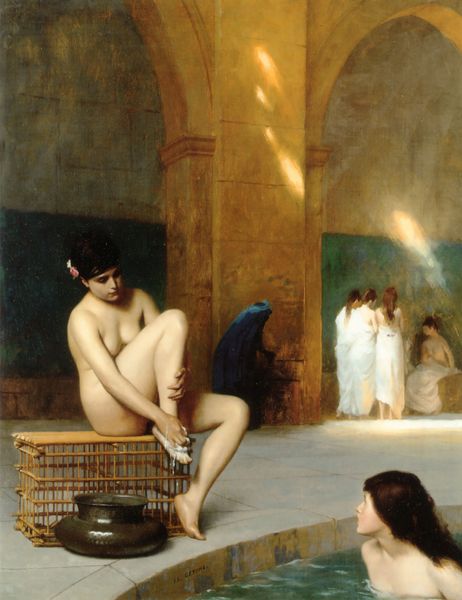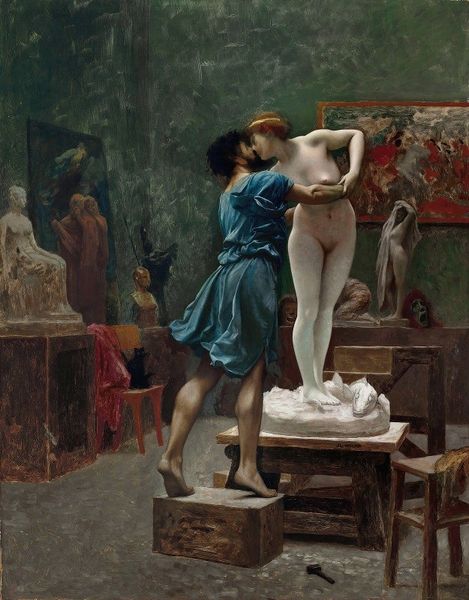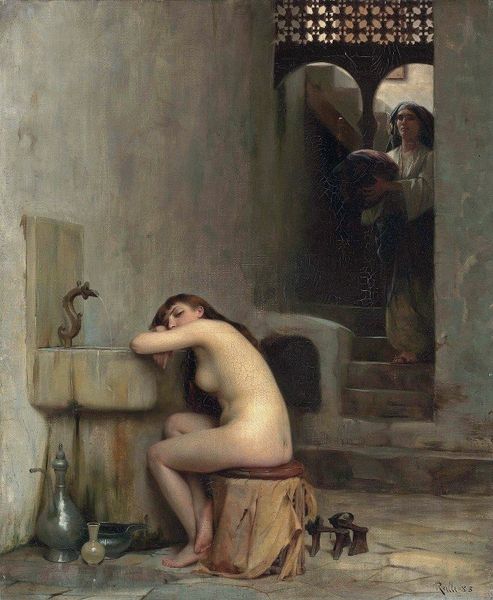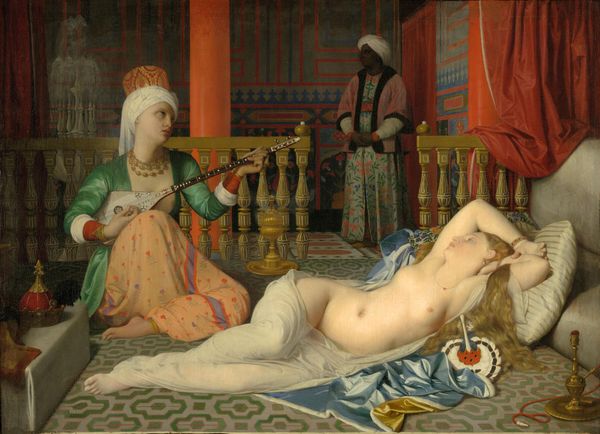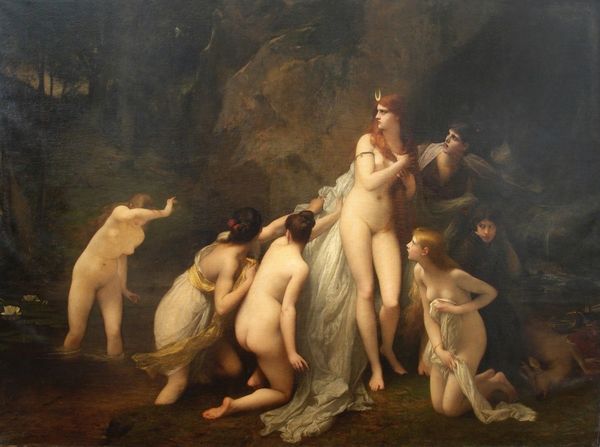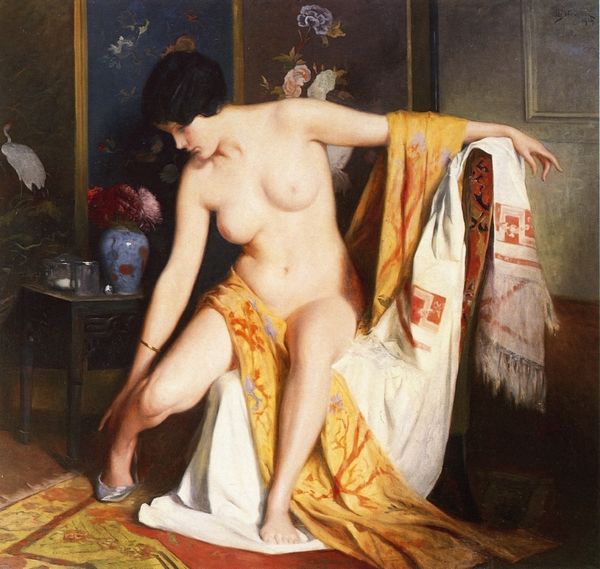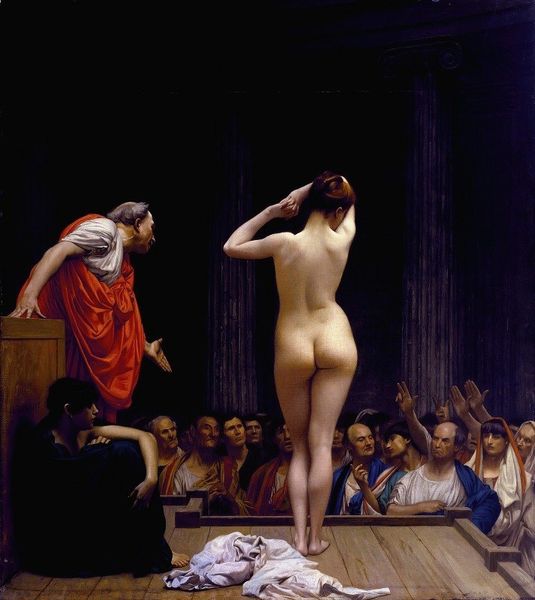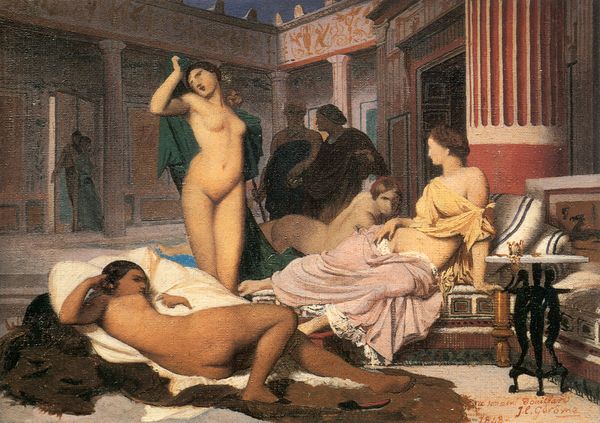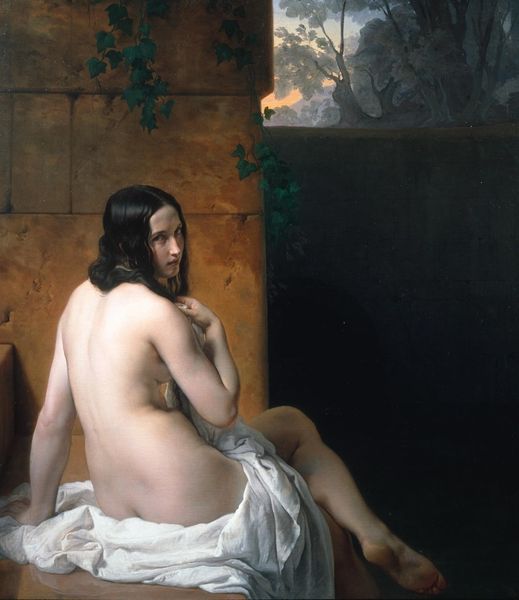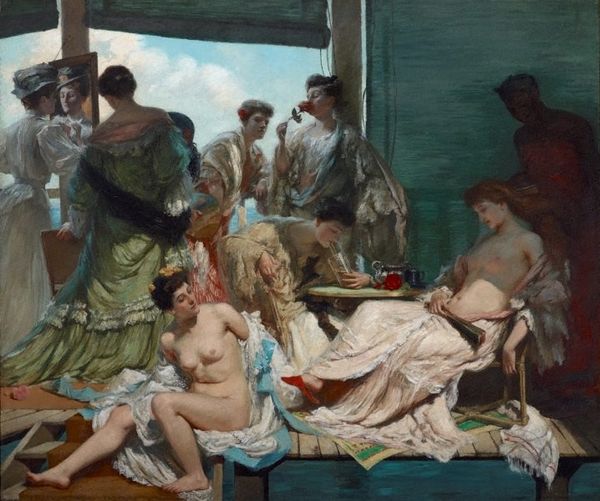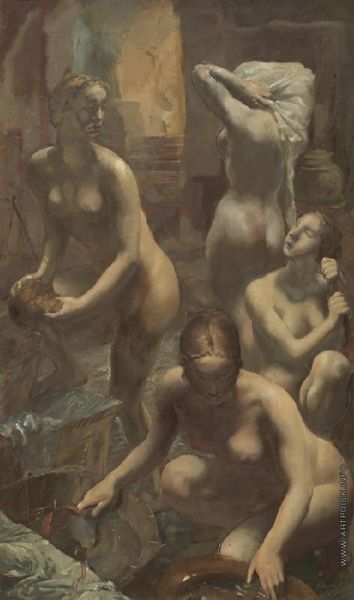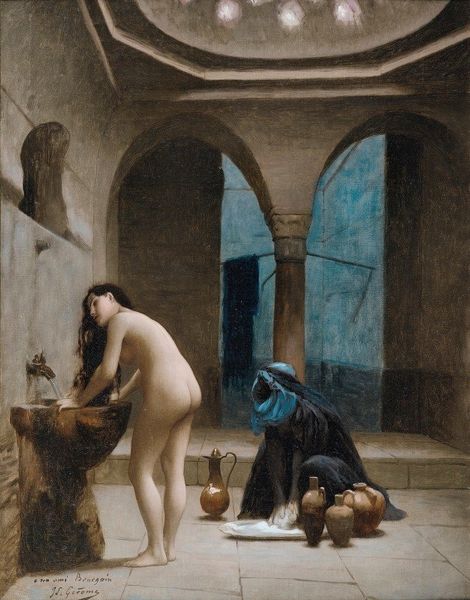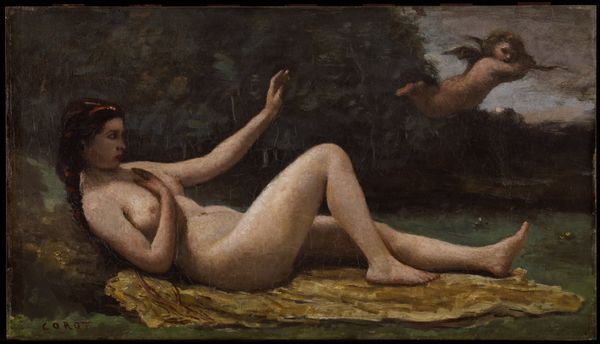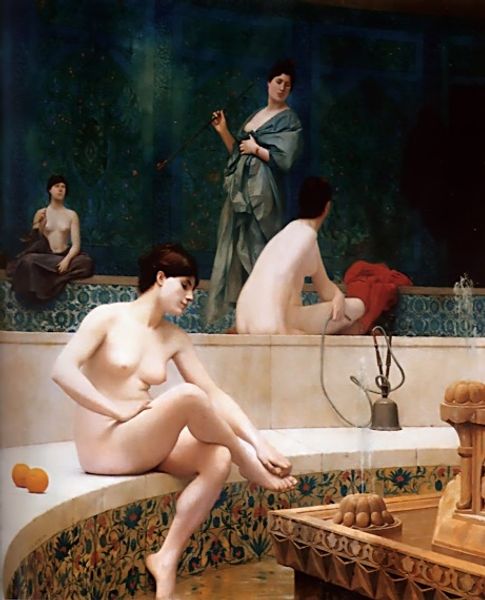
painting, oil-paint
#
figurative
#
painting
#
oil-paint
#
painted
#
figuration
#
oil painting
#
orientalism
#
genre-painting
#
academic-art
#
realism
Copyright: Public Domain: Artvee
Editor: So here we have, "Le Marabout in the Harem Bath," by Jean-Léon Gérôme, done in oil paint. I find the contrast between the soft figures and that really quite hideous bird so striking. How do you interpret this scene? Curator: Immediately, I consider the production of such a scene. Think about the labor required to not only paint this detailed depiction, but to manufacture the paints themselves, to source the canvas. And where does the artist acquire the "exotic" subject matter and materials representing Orientalism? Editor: Exotic in what way? Curator: In the sense that it perpetuates an imagined "Orient," constructed for Western consumption. Consider the labor involved in maintaining a harem, the exploitation inherent in that system, all flattened into a consumable fantasy through paint. Notice the highly polished surfaces—oil paint manipulated to mimic luxurious fabrics, smooth skin. Doesn't this excessive display of skill and materials further highlight the consumption and commodification inherent in such imagery? Editor: I hadn’t really considered the paints and the canvas themselves. I was focusing on the sort of colonialist gaze, but you're right, the very materiality of the painting reinforces that. Curator: Exactly. And think about who commissioned and consumed these paintings. They reflect a social hierarchy, the wealth and power that allowed for both the creation and the appreciation of such idealized, and ultimately, exploitative, visions. Editor: It really puts a different spin on the piece when you consider the materials themselves as being implicated in the whole narrative. Curator: Indeed. Examining the materiality shifts our focus from passive observation to active questioning about the societal and economic forces at play.
Comments
No comments
Be the first to comment and join the conversation on the ultimate creative platform.
